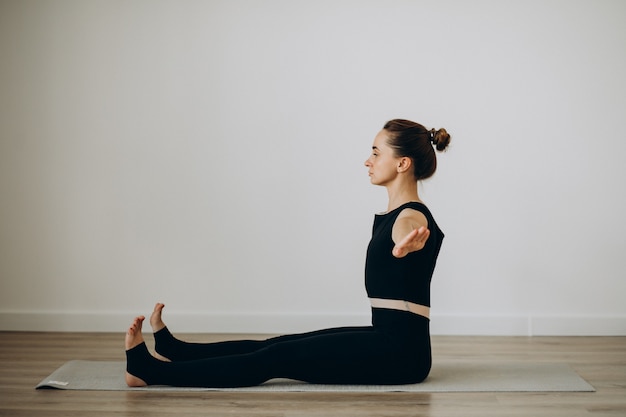
A yoga body isn’t just about being flexible; this ancient practice can also improve memory, heart, and bone health. Britons are now spending around £790 million annually on yoga classes and mats. While some new, quirky yoga styles such as rage yoga or dog yoga emerge, science backs the real benefits of yoga.
Researchers from UCLA found that a three-month yoga and meditation course was more effective at reducing age-related memory impairment than traditional memory exercises. This course also improved sleep for breast cancer survivors.
Lucy Edge, a 53-year-old former advertising executive, chose yoga over antidepressants to battle her deep depression. During a six-month break in India, she learned yoga, which brought her happiness and contentment, leading her to write books and start “Yoga Meds,” documenting yoga’s benefits through clinical trials.
Here are some health benefits from yoga and tips on how to get started:
Boost Memory and Brain Health:
If you’ve been relying on crossword puzzles and Sudoku for memory training, consider yoga. UCLA studies involving adults over 55 showed that yoga and meditation improved spatial and visual memory, reduced depression and anxiety, and increased stress resilience better than memory exercises.
Heart Health:
Yoga can be as beneficial as walking for heart health. A 2014 review in the European Journal of Preventive Cardiology found yoga could lower heart disease risks as much as conventional exercise. Reducing stress through yoga helps lower stress hormones like blood pressure and heart rate, reducing the risk of blood clots.
Manage Lower Back Pain:
Sarah Shone, a musculoskeletal physiotherapist, developed yoga classes, later incorporated into rehabilitation programs for back pain. An overwhelming 87% of participants reported pain reduction. The National Institute of Clinical Excellence (NICE) recommends yoga for lower back pain.
Enhance Bone Health and Prevent Incontinence:
Yoga targets pelvic floor muscles and other muscles, aiding incontinence prevention. As a weight-bearing exercise, it also increases bone density. Beginners should start with gentle styles like Hatha or Iyengar Yoga and inform instructors of any health issues. For specific conditions like back pain, consult a doctor for a possible subsidized yoga course.
Choosing the Right Yoga Mat:
Selecting a good yoga mat is crucial. Consider where the mat will be kept, its weight, and if it has a comfortable strap for transportation. Taller individuals might need a longer mat to avoid restriction during practice. A thicker mat can protect your joints and provide a cushion for a comfortable experience.
Healthista recommends the Elephant Cork Yoga Mat from Valka Yoga. Priced at £69.95, it is eco-friendly, made from organic cork and natural rubber, and comes with a one-year replacement warranty. The mat provides padding, comfort, and is suitable for hot yoga as it becomes grippier when wet. Additionally, it’s antimicrobial and odour-resistant.
Valka Yoga also offers a matching elephant-design cork yoga block for £19.95, enhancing stability and grip during practice, despite being heavier than foam blocks.
Whether you’re new to yoga or experienced, there are various styles to suit your needs:
– Yin or Restorative Yoga for relaxation.
– Vinyasa Flow for energetic, dance-like sequences linked to breath.
– Iyengar Yoga for precise movements and pose alignment.
– Anusara Yoga blends alignment with flowing postures, often to lively music.
– Yoga Therapy for healing injuries or illnesses.
Embrace yoga’s physical and mental benefits by incorporating it into your daily life to boost overall health and well-being.

